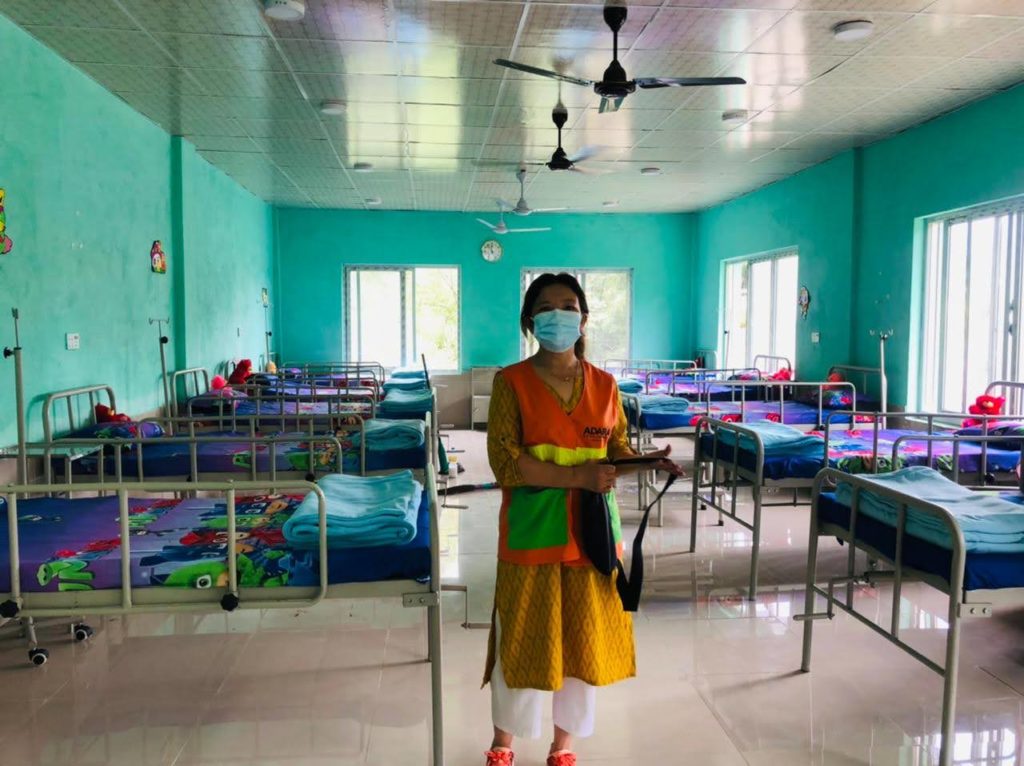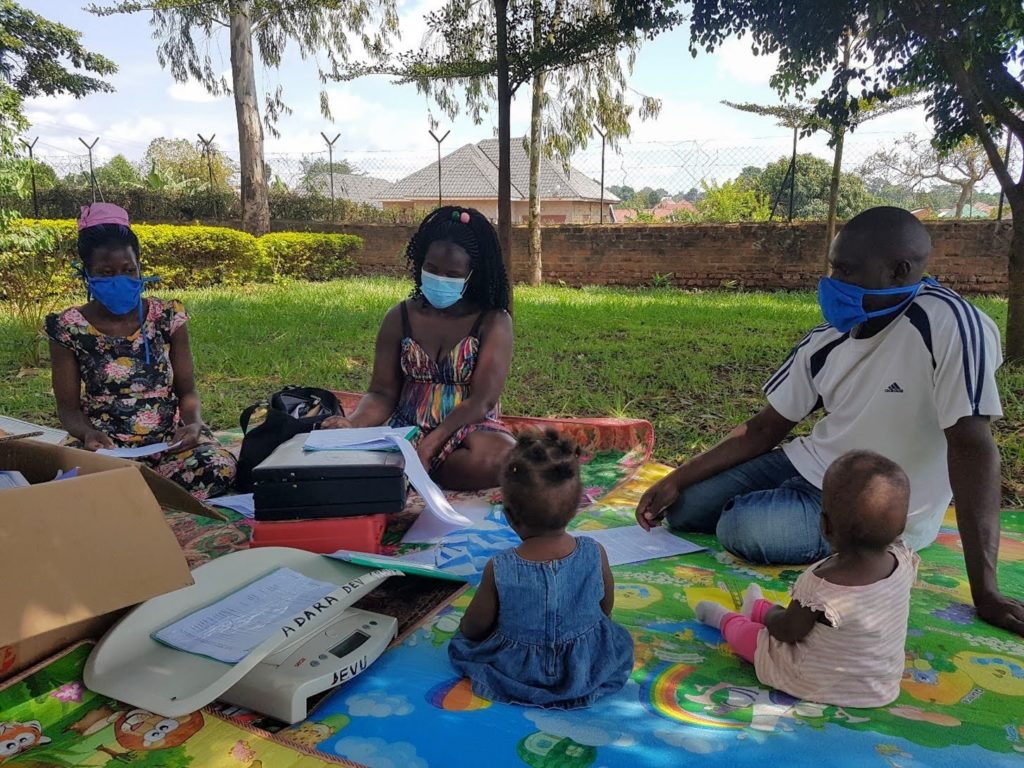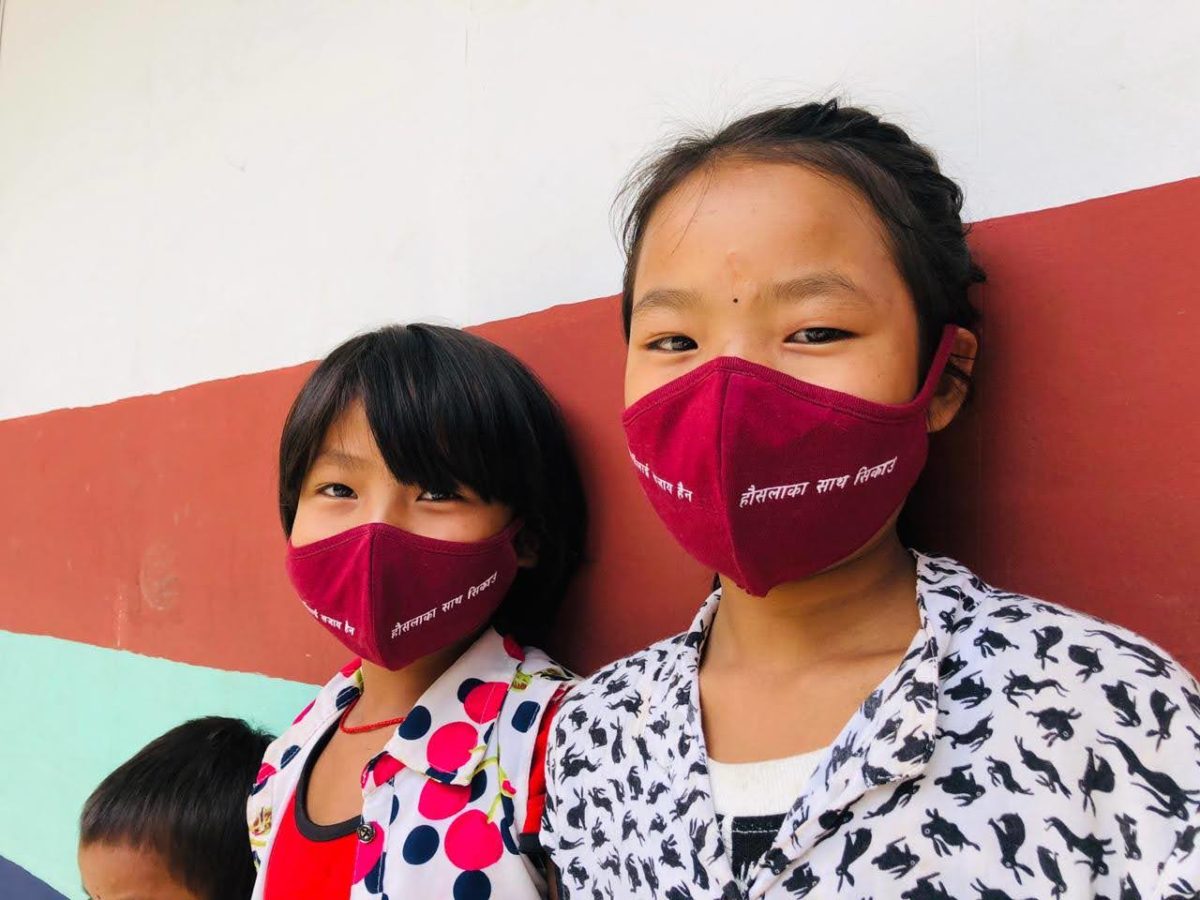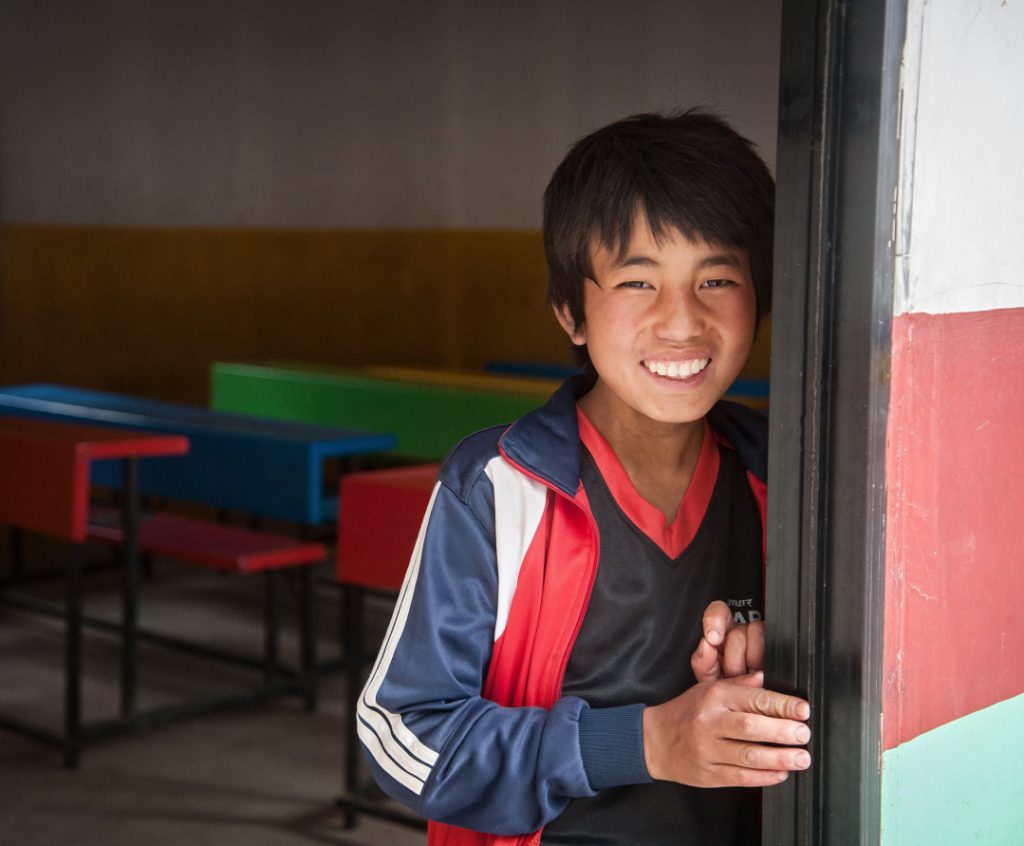Throughout the COVID-19 pandemic, our supporters at Adara have stood with us as we’ve done our best work through some of the toughest times. As well as continuing to deliver essential services across education, nutrition, child protection and health, our teams have been proactive and effective leaders.
Adara responded quickly to the unfolding crisis in early 2020 – working to educate the communities we world alongside about COVID-19 prevention and treatment, and supplying them with the personal protective equipment (PPE) necessary to prevent transmission.
In 2021, with Nepal and Uganda experiencing devastating second waves of the virus, our community of supporters once again stood with us. Together, we could ensure our teams and the communities we work with were safe.
COVID-19 in Nepal
Nepal’s second wave begun in April this year, with transmission rates being driven by the large numbers of Nepalis returning home from India. At the peak of the crisis in Nepal, 9,000 new infections were reported daily.
Hospitals and ICUs were quickly overwhelmed and suffered a severe shortage of oxygen. The second wave sadly impacted higher rates of young people, who become seriously ill. Despite being one of the most remote communities in the country, the Karnali province where Humla is located had the highest COVID-positivity rate in the world in early June.
Throughout this time of crisis in Nepal, Adara stepped forward as a leader in COVID-19 response. We worked in partnership with the Nepali police and UNICEF at the Nepal/India border to coordinate border management as more than 120,000 Nepalis returned home from India. Adara provided migrants who tested positive for COVID-19 with drinking water, health kits and PPE while they completed their quarantine.

In Kathmandu, we partnered with local organisations to create safe accommodation for nurses who were unable to return home after work due to the risk of spreading the virus to their loved ones. We supported these frontline heroes with safe accommodation, meals and medical attention.
Adara also worked proactively to keep our target communities in Humla and Ghyangfedi informed and equipped to prevent transmission as much as possible. We broadcast COVID-safety messages; trained female community health volunteers to run training sessions on hygiene practices; and delivered countless boxes of PPE and oxygen resources to health posts in the region, as well as the District Hospital in Simikot.
In Ghyangfedi, Adara worked with the local government to setup a children’s ward at the isolation center. The ward includes 10 child-safe beds, each with their own teddy bear and bedding decorated with popular cartoon characters and a range of toys. Adara’s Nepal Country Director, Pralhad Dhakal, saw this as an important step in preparing for future waves of COVID-19 and encouraging the local health system to continue building its capacity to provide quality care to patients.
As of October 2021, schools have reopened and lockdown restrictions have eased. However, our teams are working hard to ensure the community remains vigilant.
COVID in Uganda
Uganda’s second wave peaked in June and July this year with 1,000 new positive cases every day. In the Nakaseke District, where Adara’s partner Kiwoko Hospital is located, the COVID-positivity rate was at 30% during the peak of the crisis.
Similarly to our work in Nepal, Adara supported Kiwoko Hospital and the surrounding community by regularly supplying PPE, oxygen resources, and best practice advice on COVID-19 prevention and treatment. This included broadcasting COVID safety messages on local radio and supporting Kiwoko to make renovations to certain wards in the hospital to safely isolate patients while they receive treatment.

The staff of Kiwoko Hospital demonstrated incredible courage and skill as they provided frontline medical support to the community. Since setting up a dedicated, 18-bed respiratory ward, Kiwoko has cared for 372 COVID-positive patients by the end of June 2021. This heroic effort took place despite 14% of the hospital’s staff testing positive in June 2021 alone.
Kiwoko and Adara’s incredible teams continued to deliver vital maternal, newborn and child health services during this time. In the maternity ward, our teams cared for 24 mothers who tested positive to COVID-19. We also worked to ensure that our community-based healthcare programmes could continue in a COVID-safe manner, with vaccinated community health workers conducting follow-up visits at home to high-risk babies discharged from the NICU.
While vaccination rates remain low in Uganda – mainly due to vaccine supply issues – case numbers have remained stable. However, there are now fears that a third wave of COVID-19 may hit in November. Adara and Kiwoko are remaining cautious and are reminding the community to be diligent in reducing transmission.
Adara is committed to creating a world in which everyone can access essential health and education services, regardless of where they live. In 2020 and 2021, this has meant ensuring these services continue during times of global crisis. We know that the pandemic won’t be over for any of us, until it’s over for all of us.
Until then, we will continue carrying out this critical work – all made possible by our incredible supporters.

